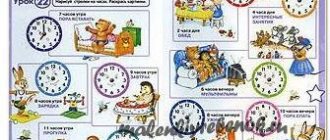The extraordinary language of flowers
In the language of floristry, each flower has its own unique meaning. It is necessary to select a bouquet strictly for the chosen occasion or event, so that the product without words tells the person about important things. When thinking about what to name a flower craft for a competition, you should take into account the meaning of floristry, and then your composition will be doubly successful.
The meaning of some plants will help in choosing an interesting and original name:
- Azalea is a symbol of femininity.
- Ambrosia is love reborn.
- Amaranth - eternal love.
- Astra is grace, a talisman of love.
- White heather - wishes come true.
- Lavender heather is a delight.
- Water lily - raging feelings in the soul.
- Gardenia - “You are beautiful!”
- White carnation - sweet innocence.
- Red carnation - whims, inconstancy.
- Pink carnation - “I will never forget!”
- Geranium - availability.
- Gladiolus - sincere feelings.
- Hydrangea - gratitude.
- Cactus - warm.
- The bell is fidelity.
- Poppy - oblivion.
- Mimosa - coquetry.
- Narcissus - “Love me!”
- White rose - innocence, mystery.
- Red rose - crazy love and passion.
- Yellow rose - jealousy.
- Tea rose - memories.
- Tulip - glory and honor.
- Violet - modesty.
- Chrysanthemum - cheerfulness, friendship, truth.
- Zinnia - courtesy.
Name of flower craft
There are many ideas on how to name a flower arrangement. After the style and meaning of the exhibition have been determined, it is necessary to create a suitable ikebana, bouquet, original craft or garland, and then give it a worthy name.
One of the following options will help in the important choice of what to name your flower craft. For example:
- "Dear Child";
- "Beautiful morning";
- "Spring Revival";
- "Gone With the Wind";
- "Tenderness of the Fields";
- "The Scent of Tomorrow's Hope"
- "Premonition of Love";
- "First kiss";
- "Secret Dream";
- “Favorite Charm”;
- "Crimson Sunset";
- "Timid tenderness";
- "The aroma of a romantic night";
- "Summer Awakening";
- “Wonderful impression”;
- "Forever beautiful";
- "Spring inspiration";
- "White Dew";
- "Sensual Flame";
- "Grateful Heart";
- "Flower Ball";
- "Constellation of Love";
- “Gentle frost”;
- "Tender Dreams";
- "Spring Melody";
- "Girl's Love";
- "Dazzling Lady"
- "Royal Song"
- "Spring drops";
- "Dance for two";
- "Light of the morning";
- "Flower Waterfall";
- "Flight of the Moth";
- "Mistress of the Forest";
- "Roses in the Frost";
- "Fire Energy";
- "Smile of Love";
- "Sun in April";
- "Music of Happiness";
- "Timic feelings";
- “Fountain of Tender Feelings”;
- "Fragrant Milady";
- "The Fruit of Eternal Love";
- "The story of one passion";
- "Silver tints";
- "Angel's Kiss";
- "Summer night";
- "First Date";
- “Dreams of cloudless happiness”;
- "Flower Ball";
- "Triumph of Hope";
- "Spring Beauty"
A wide selection of original phrases will help you decide what to call flower crafts.
Lesson "Flower Day" in the senior group of kindergarten
Summary of GCD in the senior group “Flower Day”
Topic: “Flower Day” Purpose: to clarify and systematize children’s knowledge about flowers. Objectives: Educational:
to consolidate children’s ideas about the diversity of the world of flowers, their parts, places of growth, the conditions that are necessary for the growth of flowers;
Developmental:
to develop the ability to independently apply previously acquired knowledge about nature;
Educational:
evoke an emotional response and love for nature in children.
Materials and equipment: ball, sets of cards with plant parts, paper flowers, model of the planet “Earth”.
Progress of the lesson
Teacher. Guess the riddle that will answer the question of what we will talk about. Who blooms in the sun? Who will give the bee honey? (flower) Educator. All summer and autumn flowers delight us. Let's have a Flower Day, talk and learn as much as possible about them. Game “Chest of Flowers”
Children stand in a circle and pass the ball, naming the flower they know.
Educator. Children, you know how flowers appear. The teacher distributes activities among the children so that everyone has enough work. The teacher reads a little rhyme, and ten children plant flowers and water the rest. Finger gymnastics “Let’s plant flowers”
We will dig a hole and plant a seed.
The rain will fall - It will sprout. First the stem, and then the flower. Beautiful flowers Spread their petals. The breeze breathes slightly, the petals sway. Educator. What conditions do plants need to live? Shows an illustration of a flower, draws children's attention to the fact that the flower consists of several parts, invites them to examine and name these parts. Educator. What is in the ground, what part of the flower do we not see? Why does a flower need a root? Didactic game “Find and name parts of a plant”
Each child is offered a set of cards that depict parts of plants: root, stem, leaves, flowers.
Children lay out the parts of the plant in the correct sequence. Educator. Today is a holiday of the beauty of flowers, and who is riddles ? The bells grew in a row, It’s a pity they don’t ring. Blue buds - These are... (bells)
In the spring, both pine needles and dead wood are cleared of snow.
And the first to appear In the thawed area... (snowdrop)
A golden lantern was burning in the dewy grass, Then it faded, went out and turned into fluff
(dandelion)
Look - the queen of the garden blossomed by the fence.
Not a tulip or a mimosa, But a beauty in thorns... (rose)
What is my name, tell me, I often hide in the rye, A modest wildflower Blue-eyed...
(cornflower) Logori Breathing exercises (children imitate the aroma of flowers)
- Suddenly the wind blew.
How does the wind sound? (sh-sh-sh)
- The flowers leaned to one side, then to the other.
- The wind began to blow even stronger, the flowers began to spin (oooh)
- And five the wind became quiet, began to rustle
(shhhh)
- Various insects saw beautiful flowers.
First the mosquitoes arrived, squealed (z-z-z)
- And then the beetles arrived, buzzed
(z-z-z-z)
- And then the butterflies arrived.
They sat quietly on the flowers and flew away. “Then all the insects flew away, but the beautiful flowers remained.” Educator. Children, why do we need flowers? What is the use of them, besides a pleasant aroma and beauty? (juice, nectar, pollen - food for insects)
Why do you think you can’t pick flowers?
Here's how the poet said it. Don’t pick flowers, don’t tear them - Let the Earth be more elegant, And instead of bouquets give cornflowers, forget-me-nots and chamomile fields! The teacher draws the children’s attention to the model of the planet “Earth” and suggests decorating the planet with flowers: plant forest flowers in the forest, garden flowers in the garden, and meadow flowers in the meadow. Children decorate the planet with flowers. Summary of the lesson What new have you learned about flowers? How should we treat flowers?
We recommend watching:
Summary of educational activities in the senior group “Northern Adventures” Summary of a conversation with children of senior preschool age Summary of educational activities in speech therapy for the senior group Methodological development of a summary of an excursion for children of senior preschool age
Similar articles:
Summary of a mathematics lesson in the senior group of kindergarten. Geometric figures
Floral masterpieces
Flower craft competitions require painstaking work to create a real masterpiece. What is it? At first glance, it seems that flower arrangements come only in the form of bouquets and ikebana, but this is not so. Flowers are a unique material from which you can create amazing products. The following fakes are made from these delicate gifts of flora:
- bouquets;
- wreaths;
- ikebana;
- structures involving vegetables, pottery;
- flower fountains, arches, topiary;
- fakes made of balloons and flowers;
- animals, birds and insects from flowers;
- flower baskets, appliqués and paintings.
Everything is at your discretion. Only after choosing a craft option and turning it into reality is it worth thinking about what to name the flower craft.
Magic pumpkin
Very interesting compositions of flowers are obtained in combination with other components, for example, pumpkin. The processed vegetable is an original flowerpot for a bouquet of bright multi-colored flowers. Such crafts have become very popular lately and have many different variations.
If you decide to make a similar product, then you need to figure out what to call the craft made from a pumpkin with flowers. Interesting labels will indicate the uniqueness and originality of your product.
There are several interesting names for such a composition:
- "Autumn Opening Day".
- "Small World of Flowers"
- "As a gift to Cinderella."
- "Autumn basket."
- "Gifts of Autumn"
- "Autumn Rhapsody".
- "The warmth of the hearth."
- "Miracle pumpkin."
Useful tips
In order for the display of delicate plants to go perfectly, it is important to take care of two things: what bouquets and compositions to make, and what to name the flower craft.
An attractive and interesting name should be created depending on the style of the exhibition, and undoubtedly evoke positive emotions. If the vernissage is dedicated to maternal love, the words describing the crafts should be filled with love and tenderness.
An exhibition in honor of love and union should carry a romantic style, imbued with passionate feelings, flirtation and passionate notes.
The display of flowers, signaling the arrival of spring, recalls the revival of feelings and hope, renewal and the expectation of happiness.
Important detail
Making and naming a flower craft according to the theme of the exhibition is a creative and difficult task. To do this, you need to think through the flower arrangement, take into account the age category of visitors, the complexity or, on the contrary, the simplicity of the craft. A beautiful and unusual name will look stupid on a simple bouquet of wild plants. Just like an unsightly phrase on a beautiful masterpiece of fragrant flowers.
Flowers - gifts of nature
Exhibitions with natural components can be very diverse: from vegetables and fruits, natural materials, autumn leaves and flower arrangements. Events of the latter plan are organized to coincide with some event: Mother's Day, International Women's Day on March 8, May holidays. When summer is in full swing and beautiful flowers are blooming in the flower beds, many establishments have amazing exhibitions that delight the eye and attract a lot of attention.





